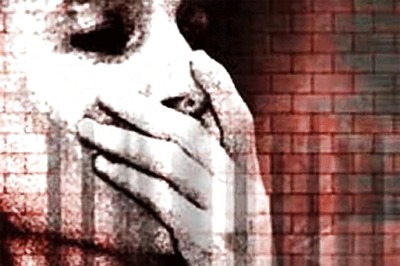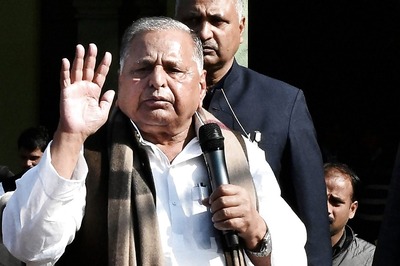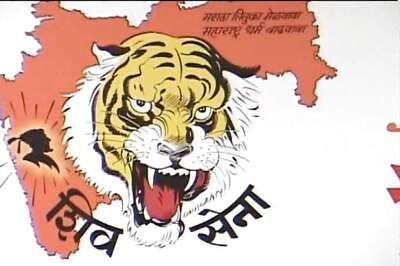
views
'Slackistan' didn't get a release in Pakistan as the local censor body refused it distribution license.
The digital film did raise considerable attention amongst knowing circles, courtesy of an unimpressive trailer online and a much publicized claim that 'Slackistan' has been refused a public exhibition by the Censor Board of Film Censors (CBFC) on grounds of scenes involving objectionable language and consumption of alcohol.
Slacker:
i: a person who shuns or avoids work or other obligations;
ii: a person who avoids military service;
iii: or an educated person who is antimaterialistic, purposeless, apathetic and usually works in a dead-end job.
The beginning of Richard Linklater's seminal feature debut Slacker offered a clear denotation of its title. The film showcased all the variants on the meaning of the word inherently attached with the spirit (or therefore lack of) of Generation X and subsequently launched a luminous career for Linklater. This was 1991.
Some twenty years later, someone chose to put a Pakistani spin on the word and proceeded to mark a new low in the checkered history of visual narrative in Pakistan – be it on TV, Film or home movies.
According to the 'Slackistan' website, a quick synopsis of the film would include "A group of privileged and westernized twenty-something friends while away their days and nights driving around Islamabad, partying, surfing the internet and smoking shisha pipes. As the country outside their world starts to crack, Hasan and his friends must face up to relationships, internal angst and life choices before it is too late."
Most of what the synopsis holds is true about the film. It's a pity the way it goes about it is most dismal and positively mind numbing. Before we go ahead and address the reason why 'Slackistan' should solely be shown to people that you don't like or better yet as an effective way of psychological torture (they played Britney Spears and Barney the dinosaur songs at Guantanamo so it is very much a possibility) it would help to refer to Slackistan as a digital film. The clarification is important since 'Slackistan' plainly and simply lacks any cinematic sensibility whatsoever. It looks and feels like video features that were briefly in vogue during the early 90s.
In a nutshell, 'Slackistan' is a bad film, a monumentally bad one that offers no redeeming qualities. It insults the audience's intelligence and does so without discrimination. 'Slackistan' can be embarrassing for liberals, tiring for moderates and condescending to conservatives. Nonetheless, the digital film did raise considerable attention amongst knowing circles, courtesy of an unimpressive trailer online and a much publicized claim that 'Slackistan' has been refused a public exhibition by the Censor Board of Film Censors (CBFC) on grounds of scenes involving objectionable language and consumption of alcohol. Hardly a bastion of rationality and reason, the CBFC decision appears to have been used to Slackistan's marketing team's advantage. Whosoever did not know of the digital film's existence became sensationally aware of it. A considerably diverse film-famished crowd was curious to see this new English language Pakistani film that mirrored their concerns and outlook in these volatile times. Sadly this was not to be.
The narrative structure of 'Slackistan' is episodic at best that follows the uneventful lives of five young adults from high heeled backgrounds. This core group forms the slacker crowd as seen fit by the director, Hammad Khan. These youngsters while away their time at ice cream parlors, sheesha joints, basement parties and driving around in stretched Mercedes. Otherwise they stay home. Two out of the five central characters display some sort of ambition: Hasan, an aspiring filmmaker and Aisha, who has vague aspirations to go to States for college. The cast is comprised of newcomers out of which only one–Osman Khalid Butt can be said of having a prior notable screen experience in Zibahkhana. Shahbaz Shigri who plays Hasan gets to play the director's surrogate whose performance relies on giving that faraway look and appearing intense. He is going through a creative block that does not bode well for his filmmaking aspirations. Additionally, to make the character more complex and nuanced, Hasan is burdened with Siddhartha syndrome whereby this rich lad professes guilt over his affluence and to that effect wanders in a less prosperous dwelling of Islamabad and befriending local kids. He even cures his creative block by filming his gardener and house servant at the end of the film. Trust me, this was not a spoiler. The rest of the entire cast is nothing to write home about.
The plot of the digital film is also problematic. It seems the director does not see any need for a coherent plot within the confines of an episodic structure. The scantly connected scenes with the otherwise mostly inane dialogues have the characters either moping about their respective whiny problems that don't rise above the dramatic tension of a real mediocre episode of Hollyoaks or 90210.
References to the ugly ground realities in terms of terrorism and security lapse that 'Slackistan' intends to signify is only limited to TV screens with stock news footage of the Taliban (of any persuasion) or random coverage of a terrorist blast and some casual remark by any of the characters.
Another reason that does not make 'Slackistan' a joyful and fulfilling viewing experience is the poor quality of sound. The camerawork is amateur and the occasional animated transitions between scenes lend Slackistan a juvenile shade rather than a hip clever one that might have been intended. The editing is messy with more than a fair share of scenes containing woefully extraneous shots.
Considering that the filmmaker is a film examiner (someone who gets paid for seeing films) and three short films to his credit, it is positively baffling to see him making a film that has all the qualities of a high school project. And to think this high school digital film was reviewed (in a not so flattering light) in the Guardian and Time Out. These are exceptionally bad times for cinema in Pakistan but surely it deserves better.
Had the digital film carried any trace of irony or used sprinkling of the indigenous pop culture in its portrayal of Islamabad's young and trendy, 'Slackistan' had the potential of turning into a smart, hip, tongue-in-cheek entertainment and been true to the claims the official synopsis of the film tries to make. Instead, it indifferently trashes the audiences' expectations, fails to offer anything meaningful or entertaining or even escapist. It simply runs on the screen, one atrocious minute after the other, taunting you to endure its unremarkable existence and the depressingly airheaded indulgences of its characters that we simply don't care about. Maybe he should first identify an audience for his next film that extends further than himself, his friends and kin. Hammad Khan should have left the 'Slackistan' moniker for a more fitting film and rather use Bratistan as the name of his digital feature length film.




















Comments
0 comment